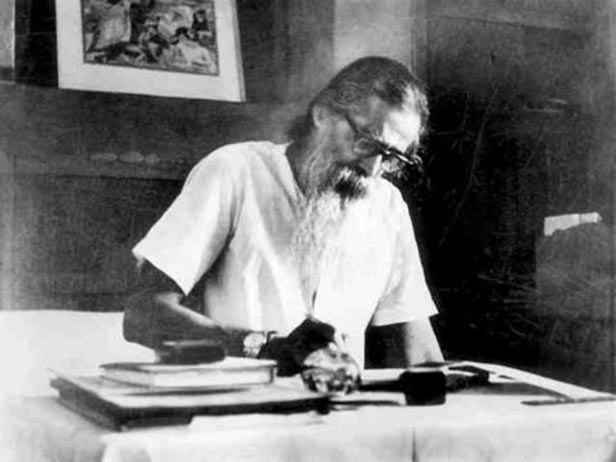From a talk with Dr. Saifuddin Jeelany, a noted Muslim Scholar, February 1971:
Jeelany : We know that both Hindus and Muslims have a vast amount of goodwill for each other. In spite of this, occasional frictions of varying magnitudes do occur. What steps, in your opinion, should be taken to minimize or altogether stop these?
Guruji : One of the causes of these frictions is the Cow. I do not know why the Muslims should go on harping upon their so-called right to slaughter the cow. They need not. As a matter of fact, it is not their religious injunction. That was only a way of spiting the Hindu in the old days. Why should it continue now? Can we not share each other's festivals? Our most popular festival which brings various strata of society together is the Holi. Suppose in this Holi festival a Muslim is sprinkled with a little colored water, do you think that the injunctions of the Koran are violated? Why not regard it as a social affair? The Hindus have been taking part in various Muslim festivals such as the Urs in Ajmer. But suppose we ask Muslims to come and take part in Satyanarayana Puja, what will happen? Once, the DMK people took a Muslim minister to Rameshwaram. He was accorded all the conceivable honors by the temple authorities. But when the tirtha and prasaadam were given to him he threw them away! Why should he do so? Suppose he had taken the prasaadam, would it have violated his religion? We have to learn to adopt an attitude of respect for one another.
We must respect, not merely tolerate, all other faiths. Ours is not Sahishnutaavaad, but Sammaanatavaad.
Jeelany : We know that both Hindus and Muslims have a vast amount of goodwill for each other. In spite of this, occasional frictions of varying magnitudes do occur. What steps, in your opinion, should be taken to minimize or altogether stop these?
Guruji : One of the causes of these frictions is the Cow. I do not know why the Muslims should go on harping upon their so-called right to slaughter the cow. They need not. As a matter of fact, it is not their religious injunction. That was only a way of spiting the Hindu in the old days. Why should it continue now? Can we not share each other's festivals? Our most popular festival which brings various strata of society together is the Holi. Suppose in this Holi festival a Muslim is sprinkled with a little colored water, do you think that the injunctions of the Koran are violated? Why not regard it as a social affair? The Hindus have been taking part in various Muslim festivals such as the Urs in Ajmer. But suppose we ask Muslims to come and take part in Satyanarayana Puja, what will happen? Once, the DMK people took a Muslim minister to Rameshwaram. He was accorded all the conceivable honors by the temple authorities. But when the tirtha and prasaadam were given to him he threw them away! Why should he do so? Suppose he had taken the prasaadam, would it have violated his religion? We have to learn to adopt an attitude of respect for one another.
We must respect, not merely tolerate, all other faiths. Ours is not Sahishnutaavaad, but Sammaanatavaad.
Namaste!
[Source: golwalkarguruji.org]

Comments
Post a Comment